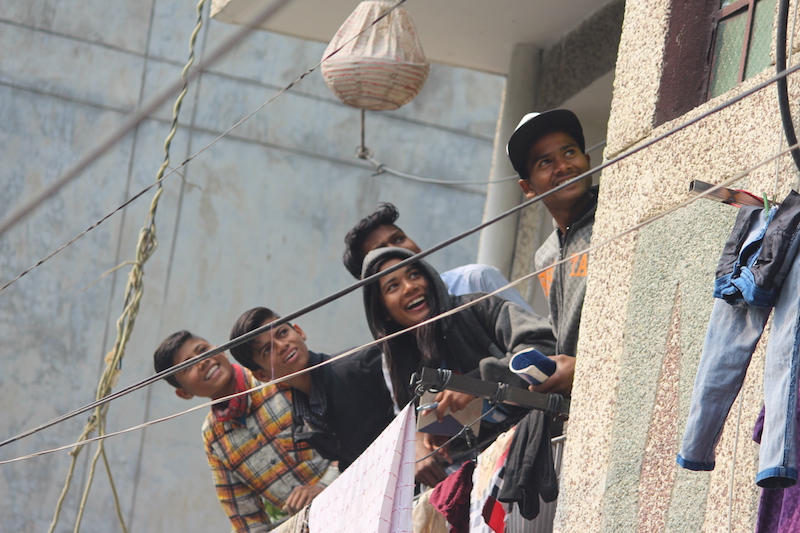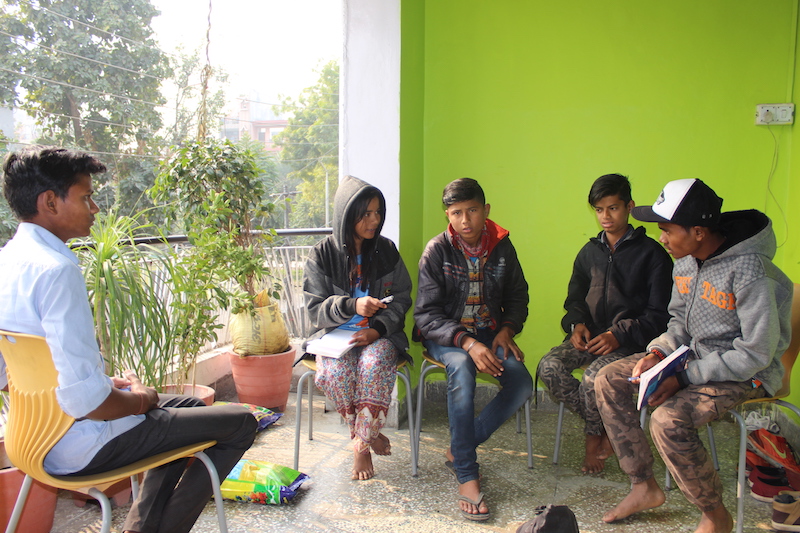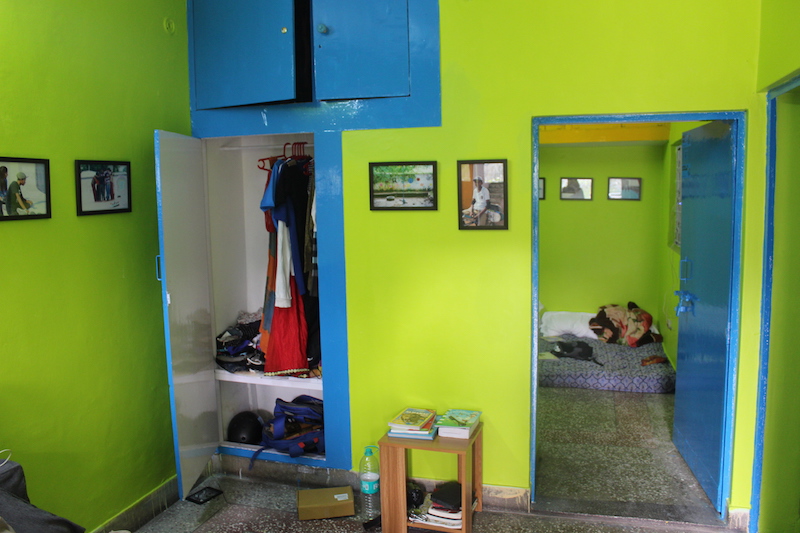Together with Prakriti School in Noida we’ve defined a learning experiment for our Janwaar kids because we believe that we need to rethink education for rural villages in India.
To receive “good” education in a remote village in India is daunting. The so called “best students”, once they’ve passed 10th or even 12th grade, can hardly read a page in a newspaper and they are far from understanding what they’ve read. Their gaps in Hindi reading and writing are tremendous, their understanding of math is very, very basic.
In comparison to a good school in Mumbai or Delhi a 10th grader in Janwaar has the qualification of max. a second grader in the big city. Period. This has various reasons: the qualification of the teachers, the equipment of the schools, good teachers don’t want to live in remote areas and last but not least the curriculum itself. None of these issues can be solved short term and without government intervention. So we’ve started a schooling experiment which hopefully will make the existing system within a couple of years obsolete.
Based on our experiences over the last four years and with feedback from the local teachers we selected 20 children for an assessment – five were selected for the experiment. And, not really surprisingly, these kids were almost identical with those who stood out as “leaders” and “changemakers” in the village over the passed years.

Our experiment started in January 2019 and will run for two years. It includes academic time at Prakriti School and hands-on work in Janwaar and in the field. The methods we use are a mix of self-organized, technology-based, phenomena based and mentor-internship based learning. Our goal is to get these five kids read to pass the 9th or 10th grade exam under the NIOS board in two years.
We have clearly defined milestones for each of them – according to their talents and interests. The kids themselves have become assistant teachers at Prakriti, where they “give” learning in the mornings, and they themselves “receive” learning in the afternoons. The educational team includes young motivated “learners” and experienced teachers. Their lessons are face-to face in small groups as well as online.
The entire program is a holistic approach in which learning is fun and lifelong. We aim to make these children more complete human beings with a focus on critical thinking and solving real life problems.

It is just across Prakriti School

